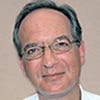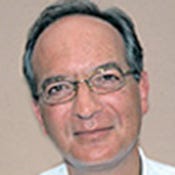The Observer: Here's Hoping This Group-Think Effort Is Full Of Wisdom
You may not think crowds necessarily are wise, but in this case, <B>Lou Bertin</B> says, collective experience can help craft a winning system if bureaucrats let it.

One conversation had, one book read, one newspaper piece skimmed and one process experienced have left me not knowing whether to click my heels with delight (a Gene Kelly-Ron Santo move I've never perfected) or adopt the "expect the worst and hope you're wrong" approach to things.
The common theme among the above-referenced activities is government; specifically, the intersection of government and the implementation of technology to implement new processes and practices.
The conversation had was with a friend who spent much of her Labor Day weekend putting together legislation aimed at implementing the 9/11 Commission's recommendations for passenger safety. The book is James Surowiecki's spectacular The Wisdom Of Crowds--Why The Many Are Smarter Than The Few and How Collective Wisdom Shapes Business, Economies, Societies and Nations (henceforth: The Wisdom) (Doubleday, 2004). The newspaper piece was Cindy Skrzycki's always eye-opening "The Regulators" column in The Washington Post. And, lastly, the process experienced was my registration for the Registered Traveler program.
Trust me, they all fit together in ways great, small, hopeful, and scary.
Grouping the above in a somewhat "natural" order, the recently proposed legislation would codify and implement the 9/11 Commission's recommendations and is a spectacular first step toward effectiveness and common sense. As one who spends more than my share of hours in the company of the airlines, virtually anything that can be done to improve passenger security is something I fully support (someday, they'll get around to allowing nail scissors and banning half-gallon bourbon bottles that can be turned into multipronged shanks, but that's a separate issue).
One of the cornerstones of the legislation is turning responsibility for passenger screening over to the Transportation Security Administration (something I believe the frequently harassed Edward Moore Kennedy will enthusiastically support) and that's all to the good.
What's not so good is that what we're looking at merely at the baseline level is a massively complex database-integration effort that will require the involvement of multiple government agencies, state and local law enforcement, and the incompatibly equipped airlines. There will necessarily be the hand-off of astronomical volumes of personal data, all of which ought to be (but might not be) updated and verified. If fully implemented, the legislation will require a breathtaking infrastructure that's utterly and demonstrably achievable, but the odds don't necessarily favor that because...
All of this astronomically challenging and critical security integration will be done under the gaze of those frisky regulators, who'll need to create new standards or, at the very least, will need to find ways to tailor old standards to match up with new realities. Either way, that doesn't stand to be a pretty process. As The Post's Skryzcki points out, these are the self-same organizations that have come up with more than 100 standards for identifying meat, chicken, and egg products, one of which ensures that you'll never, ever be served a flat hot dog. I'm not certain these are the organizations I'd necessarily want overseeing what can and in many ways MUST be the singular achievement of this phase of the E-government era, but we all must play the hands we're dealt.
But there's hope for even the unwelcome prospect of unwieldy regulatory oversight in The Wisdom .Surowiecki's central thesis is that if you "ask 100 people to answer a question or solve a problem, the average answer will often be at least as good as the answer of the smartest member. With most things, the average is mediocrity. With decision-making, it's often excellence. You could say it's as if we've been programmed to be collectively smart."
And if that hopeful contention isn't enough, The Wisdom goes on to say that four key conditions characterize wise crowds: diversity of opinion, independence, decentralization, and aggregation. Surely, the elements and constituencies involved in securing air travel represent all of the above in spades.
Lastly, my personal experience with the pre-legislation Registered Traveler Program was nothing if not positive. It's a reasonable process that's thorough and goes after what this layperson considers the correct subjective stuff, layered with the "routine" technologies of biometrics and what I can only presume to be more-thorough-than-a-home-equity-loan background screening procedures. The program is in pilot phase and is a mere germ of what it promises to become, but it's a start and I'm pleased to be one of the combination testers and testees.
Why all of this gassing about government and technology? For one because it's critical and, admittedly, it hits close to home personally. But it also hits close to home professionally. It's a combination of proactive and reactive change, the need to integrate internal and external infrastructures to accommodate current and unexpected demands, and unrelenting scrutiny from "friendly" and "unfriendly" onlookers within. What, other than those circumstances, have all of you been dealing with for the past 10 years?
Here's hoping the best lessons all of you have taught through your experiences find a receptive home among those to whom we entrust our safety. Here's hoping, too, that our protectors come back with a couple lessons of their own for all of us.
To discuss this column with other readers, please visit Lou Bertin's forum on the Listening Post.
To find out more about Lou Bertin, please visit his page on the Listening Post.
About the Author(s)
You May Also Like
How to Amplify DevOps with DevSecOps
May 22, 2024Generative AI: Use Cases and Risks in 2024
May 29, 2024Smart Service Management
June 4, 2024







